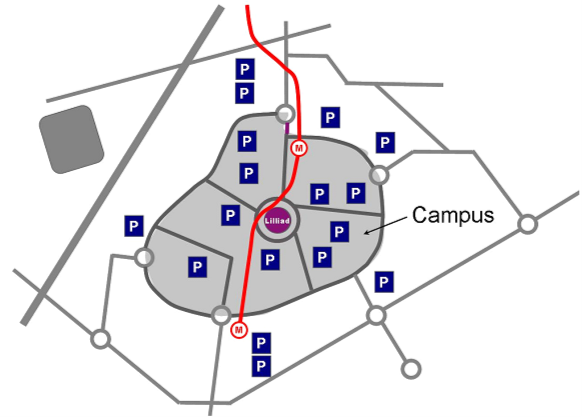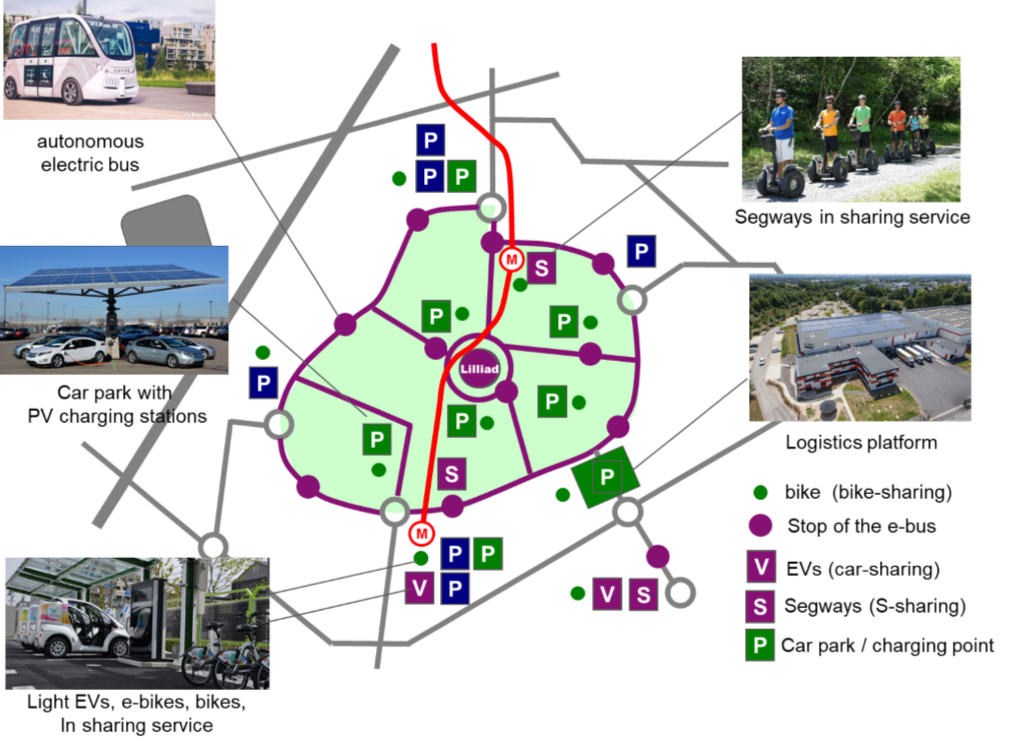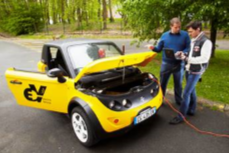TESS Project
Summary
The TESS Project (Technical-Economical Study of Sustainable campuses) aims to develop flexible technical-economic models of an integrated eco-mobility system that will be used as the basis for decarbonization of transportation at the Cité Scientifique of the University of Lille. The practical goal of TESS is to determine the most efficient methods for integration of the stationary, mobile, and human elements of the eco-mobility system and to establish a business model that that cost-effectively achieves that goal. The campus of University of Lille will be used as a testbed to develop this framework, which can be applied at campuses, corporations, and cities around the world.
Approach
TESS is an interdisciplinary program, which gathers research on electrical engineering from L2EP, on data analysis and control sciences from CRIStAL, and on city planning from the TVES. TESS involves integrative work, bringing together different streams of research to propose a plan to the University of Lille that can efficiently achieve University decarbonization goals while respecting the technical, economic, and human elements of the transition.

The intellectual contribution of TESS is the creation of an analytical framework that combines modeling of the technical, behavioral, and economic elements (EVs, charging points, solar generation, usage, mobility preferences, acceptance, capital and operating costs, and rate structures). This will require development of original methods that couple all of these elements into an analytical framework that includes uncertainty, heterogeneity, and behavioral aspects. These models will be quantified using data gathered from the CUMIN projects, making a strong link between theory and practice.


Reorganisation of the campus: current organization (left) and possible eco-campus scheme (right).
 An eco-mobility system must have a business model that a) is attractive to all users (including the system owner), b) fairly allocates costs and benefits and c) encourages efficient use of resources. The final stage of TESS is evaluation of various business models, determining how to charge users (flat rate or volumetric, variable or fixed fees, etc.), and how users will respond to different pricing schemes.
An eco-mobility system must have a business model that a) is attractive to all users (including the system owner), b) fairly allocates costs and benefits and c) encourages efficient use of resources. The final stage of TESS is evaluation of various business models, determining how to charge users (flat rate or volumetric, variable or fixed fees, etc.), and how users will respond to different pricing schemes.
Output
We want to ensure that the transition to an electric transportation infrastructure is well-designed, with coupling between the stationary and mobile components and careful consideration for economics and user requests. The output of the TESS project will answer a variety of important questions about the design and operation of any electro-mobility fleet:
- What combination of local generation and storage can deliver the required charging energy at lowest system cost?
- How should the system’s stationary storage be operated in order to provide maximal value while meeting the transportation needs of users?
- How can the EV charging algorithms be designed to best take advantage of the expected output and variability of solar generation?
- How do we convince EV owners to charge during the most efficient periods while ensuring that their transportation needs are met?
- What is the ideal model of growth for an electrifying transportation fleet?
Recruitment
If you are interested in joining TESS, current recruitment related to the project is listed here.
Contact: Visiting Prof. Eric HITTINGER, Scientific Leader of TESS, L2EP / University of Lille.







